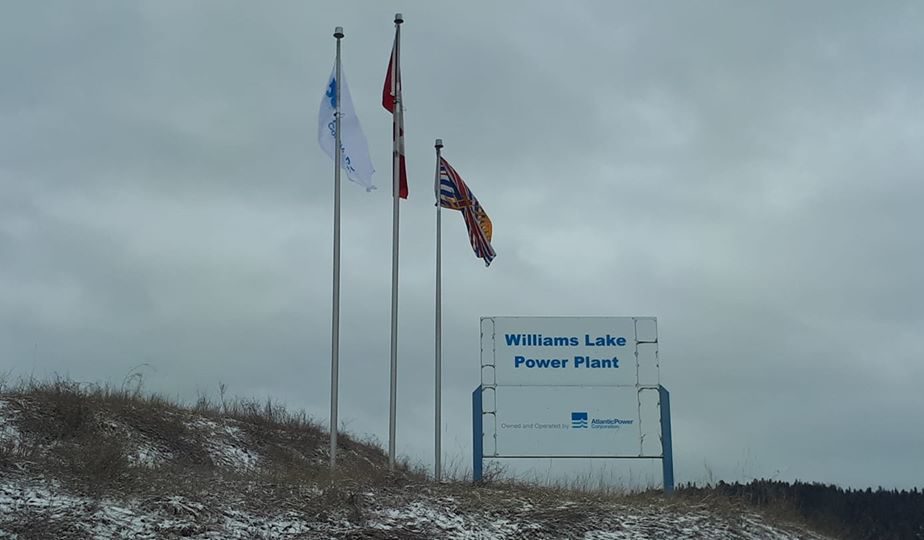The burning of rail ties in Williams Lake is included in Atlantic Power’s 10-year purchase agreement with BC Hydro according to an ad hoc community group.
“This has not been announced. This is something that a lawyer found out for us,” said Rail Ties Be Wise volunteer Jenny Noble. “And that’s part of what we’re concerned about is that we’re just not being told very much about what Atlantic Power plans to do, how many rail ties are they planning to burn, where they are going to store them, when will they start burning them, and what kind of oversight we can expect from the Ministry of Environment.”
Atlantic Power (AP) said it had signed a new ten-year energy purchase agreement with BC Hydro for its biomass plant on Mackenzie Avenue North in Williams Lake on Oct. 1, 2019.
“During the permit amendment process, the project and the potential burning of rail ties underwent extensive environmental reviews. Burning rail ties at the plant would address an environmental concern with respect to discarded rail ties,” said AP business manager Frankie Nelson. “However, at this time we are not preparing to burn rail ties at the plant as a source of fuel. We are focused on sourcing and contracting for traditional fiber supplies in the area.”
Going forward, Nelson said there are many factors that will influence their decision whether to undertake the capital investment in a fuel shredder that would be required to burn rail ties.
“We have not committed to such an investment at this time,” she said.
A spokesperson with the Ministry of Environment said based on the feedback received throughout the application process, including public consultation and the technical merits of the application, an independent statutory decision-maker approved the amendment on September 6, 2016.
That decision has been upheld by the Environmental Appeal Board, with the addition of some minor amendments to the permit.
The Environmental Appeal Board decision states that the combined rail tie material and clean construction and demolition debris component cannot exceed 35% of the total biomass supply annually or more than 50% on any given day. According to Rail Ties Be Wise that equates to 24 million rail ties over the duration of the 10-year contract.
“The air permit includes an ambient monitoring program that confirms that emissions must meet ambient air quality objectives,” the spokesperson said. “Monitoring sites are tested and monitoring data is reviewed by Ministry staff for accuracy, the air monitoring sites have to be in place before rail tie burning starts and have no end date identified in the permit.”
While Noble agrees rail ties have to be disposed of somehow, she maintains creosote soaked rail ties that are also old enough to contain PCP should not be burned in the middle of a municipality with tens of thousands of people living in the airshed.
“Everyone knows we have dust in the summer and wildfire smoke, inversions in the winter, and industrial activity all year round. What happens when we add more chemicals to this mix is not known,” Noble said. “There is no proof that Atlantic Power can offer that this is not harmful to us, and there are many people we’re hearing from who say they’re going to move away once the rail ties are being burned and we’re also concerned that people might not be that interested in moving here.”
Noble argues there will be no benefits and no significant additional employment by AP burning rail ties, and that there could even be jobs lost.
“Contractors are out there now in the woods bringing in logging waste that is normally burned right out in the field and Atlantic Power is now burning that for fuel,” she said. “We don’t know whether CN Rail is going to pay Atlantic Power to burn these rail ties which are a problem for CN Rail. If they [AP] decide that it’s more profitable to burn the rail ties then it is to burn the logging waste there’s contractors out of work, so the promise of more jobs and economic benefits we don’t see where that’s coming from.”
Something going on in the Cariboo you think people should know about?
Send us a news tip by emailing [email protected].








